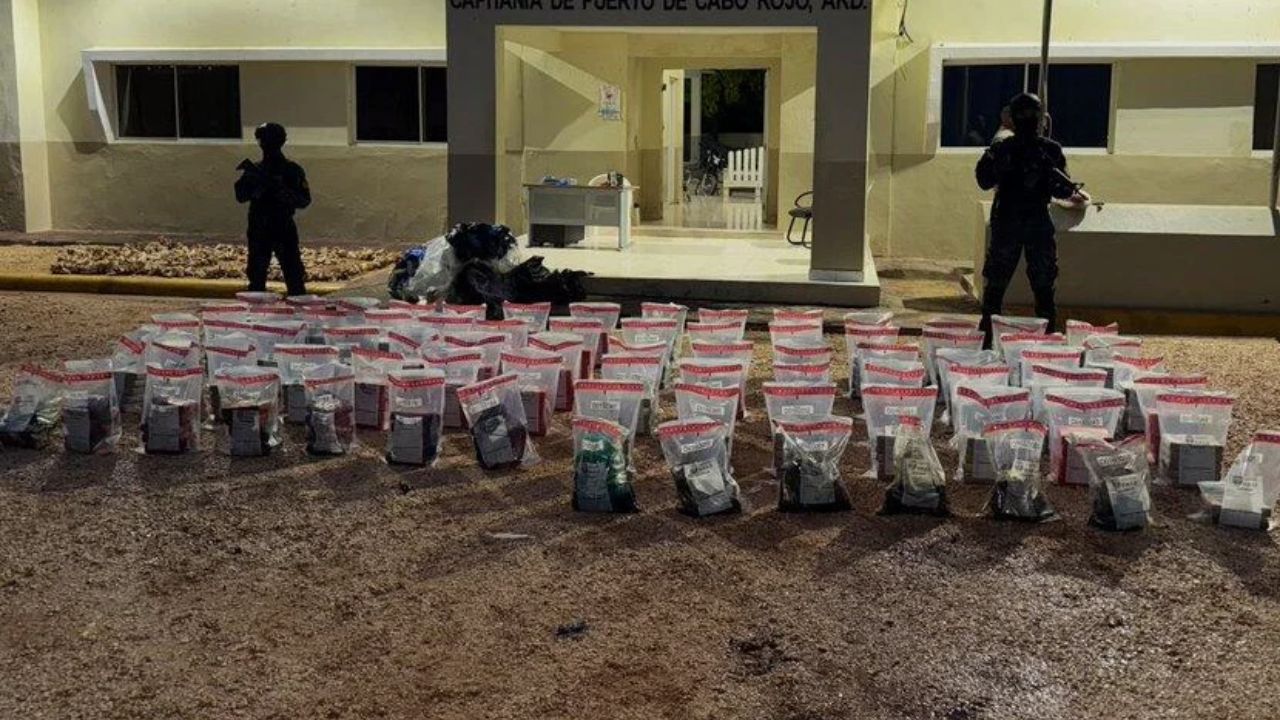Dominican Republic – In a significant joint operation, authorities in the Dominican Republic announced that they have seized a massive haul of cocaine from a speedboat recently destroyed by the U.S. Navy. This marked the first cooperation of its kind between the two nations targeting narcoterrorism in the Caribbean region.
The Dominican Republic’s National Directorate for Drug Control (DNCD) revealed that they recovered 377 packages of cocaine weighing an estimated 1,000 kilograms (over 2,200 pounds) following an aerial military strike conducted by U.S. forces. The operation took place approximately 80 nautical miles south of Isla Beata, a small island under Dominican jurisdiction.
A Historic Joint Anti-Narcotics Operation
The DNCD detailed in a recent news conference that the speedboat, which was allegedly attempting to dock in the Dominican Republic to use the country as a transit point for cocaine destined for the United States, was located and targeted through combined efforts between the Dominican Navy and U.S. authorities.
Authorities released footage showing officers unloading and inspecting bricks of cocaine, some packages visibly marked with the word “MEN”. This close cooperation represents an unprecedented milestone in Caribbean maritime drug interdiction efforts.
“This is the first time in history that the United States and the Dominican Republic carry out a joint operation against narco terrorism in the Caribbean,” said the DNCD in their official statement.
U.S. Naval Deployment and Drug War Escalation
In August, the U.S. intensified its military presence in the southern Caribbean by dispatching eight warships and a submarine as part of an operation aimed at combating drug trafficking. According to the White House, this naval flotilla has already destroyed at least three drug-carrying vessels, resulting in the deaths of more than a dozen individuals aboard those boats.
- The recent strike near the Dominican Republic is among these ongoing missions, although officials have not disclosed if there were casualties in this specific case.
- The operations predominantly target vessels allegedly departing from Venezuela, which U.S. officials accuse of being a hub for drug trafficking led by a cartel known as the Cartel of the Suns.
These military activities have spurred controversy, with human rights groups condemning the strikes as extrajudicial killings. In response, two Democratic senators have introduced a resolution to Congress seeking to halt further naval strikes.
Regional Tensions and Political Responses
Venezuelan President Nicolás Maduro has vehemently denied drug trafficking allegations and criticized the U.S. military presence as a threat. Maduro labeled the naval build-up as “an absolutely criminal and bloody threat.”
In recent weeks, tensions have escalated with Venezuelan fighter jets reportedly engaging in close encounters near U.S. naval ships, described by officials as a dangerous “game of chicken.” Additionally, Venezuela accused the U.S. of detaining fishermen and seizing a fishing vessel within its exclusive economic zone.
The U.S. military continues to fortify its operational capabilities, including deploying 10 F-35 fighter jets to Puerto Rico for anti-cartel operations, signaling further commitment to curbing illicit drug movements in the Caribbean.
What This Means for Caribbean Drug Enforcement
The latest joint operation between the U.S. and the Dominican Republic underscores a growing commitment to collaborative efforts against narcoterrorism in the region. Experts suggest that such multi-national cooperation is vital for disrupting cocaine trafficking routes and weakening powerful cartels.
- The success of this operation could pave the way for more integrated naval and law enforcement strategies in the Caribbean Sea.
- It highlights the strategic importance of the Dominican Republic as a key transit point in international drug trafficking networks.
- However, it raises significant concerns about the human rights implications associated with militarized drug interdiction tactics.
More insights and updates on this developing story can be found in the original CBS News report here.
Have Your Say
What do you think about this historic joint operation against narco terrorism in the Caribbean? Have you ever visited the Dominican Republic or followed anti-drug efforts in the region? Share your thoughts in the comments below!


 by
by 

